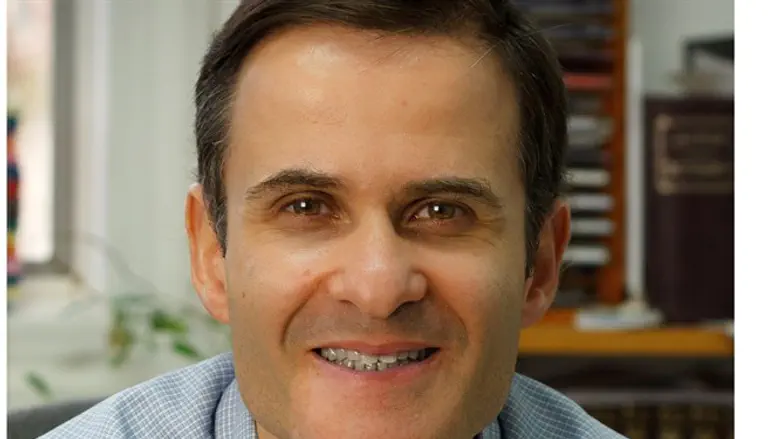
This week's Dvar Torah is by Simon Jackson, Legal Adviser to Torah MiTzion
Did Bilam’s donkey really speak to Bilam? It could have done; Hashem, after all, is capable of doing anything (Shadal). But it may have taken place in a prophetic vision, “on the subconscious plane of the mental and moral conflict in Bilam’s soul” (Hertz). Moreover, nowhere does the Torah state that the ass gave utterance to human sounds (its strange behavior in the angel’s presence and its wild cries were understood by Bilam to mean the words given in the Text).
When the earth opened its mouth and swallowed up Korach and his household, was this a natural or supernatural phenomenon? Ibn Ezra (criticized by Ramban) and others (including Prof. Zohar Amar in an article written in Shabbaton two weeks ago) argue it may have been an earthquake, as the Torah states: “the ground under them burst asunder” (16:31). This explanation could be corroborated by the words nasu le’kolam, usually translated as “the Israelites fled at their cries”, but could also refer to the earth-convulsions generated by the earthquake (cf. kol Hashem – the voice of the Lord – in Psalm 29).
Rambam in his Moreh Nevuchim (II:42) argues that any appearance or speech of an angel mentioned in the Torah took place in a vision or dream. It follows that the miracles when Avraham met with the three angels, the blindness of the men of Sodom, and the opening of the donkey’s mouth in our parsha were all “in the mind’s eye”. Yaakov’s wrestling and speaking with the angel was likewise entirely a prophetic vision – “there wrestled a man with him” (Ber. 32:25) should thus be interpreted as an internal struggle, between Yaakov’s baser passions and his nobler ideals (Hertz).
What about the “ten miracles that occurred for our ancestors in the Temple” (see Pirkei Avot 5:4)? Rambam, the Rationalist, for example, would argue that the fact that “the sacred flesh never became putrid” was thanks to the incense (ketoret) which emitted a pleasant odor, thus neutralizing the stench of the blood and entrails (see Moreh Nevuchim III:45)! The wind did not dissipate the pillar of smoke that arose from the sacrifices, because “the air during the time of the sacrificing was fresh”. And while the people stood pressed together, yet when bowing down they did not push against one another in the courtyard of the Mikdash, “due to their great awe and tranquility” – not that the floor expanded, but that people’s hearts opened up, making room for everyone in the place (see Rambam’s Peirush HaMishnayot commentary to Pirkei Avot).
None of the above proves that the Rambam negated the supernatural element of miracles (see, for example, in II:25 of Moreh Nevuchim, where he clarifies that if one believes in the creation ex nihilo of the world, one is of necessity forced to believe that all the miracles in the Torah are possible). Rather, Rambam minimized the supernatural component.
In a responsum entitled “Does Taking Out Insurance Constitute a Lack of Trust in Hashem?” (O.C. 111), Rav Moshe Feinstein argues that to buy life insurance (and similarly theft/fire/car insurance) is not only permissible but religiously desirable. He cites the Gemara in Masechet Shabbat 53b, in which one man’s wife died, leaving him a son to nurse. Not having money to pay the wages of a wet-nurse, a miracle was performed on his behalf, and he developed breasts enabling him to nurse his son. Rav Yosef said: “Come and see how great this person is that a miracle of that magnitude was performed on his behalf!” Abaye, on the other hand, responded: “On the contrary, how dishonorable is this person that the order of creation had to be altered on his behalf.”
For Rambam, Abaye has and deserves the final word. The Mishna (Pirkei Avot 5:5) enlightens us that ten phenomena were created “in the twilight zone”, including the mouth of the earth that swallowed up Korach and company, the mouth of Miriam’s well, and the mouth of Bilam’s donkey. What appear to be open miracles are thus revealed to be part of Nature itself.
Hidden miracles (such as in Megilat Esther) have far greater intensity than open ones, as they enable the world to continue “as normal”, thereby encouraging us to contribute our abilities and talents to bettering the world and its problems, rather than relying on Hashem to do so for us. Hashem works and pulls the strings, just behind the scenes, thus allowing us to take center stage.
comments: simon@jacksonadvocates.net

Torah MiTzion stands in the forefront of the battle for the future of the Jewish people in the Diaspora, offering religious-Zionist Torah scholarship to Jewish communities throughout the world and strengthening the bond between the Jewish people in the Diaspora and in Israel via the study of Torah.